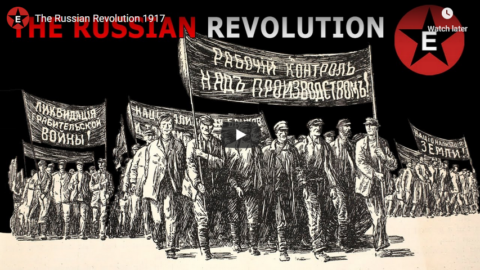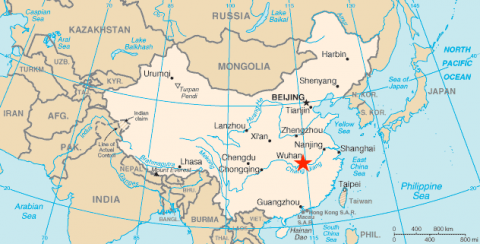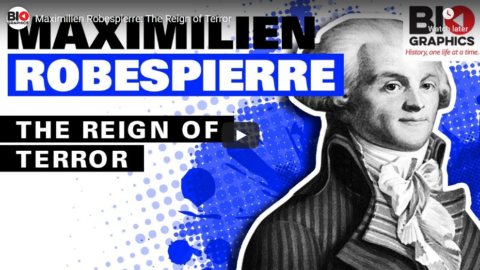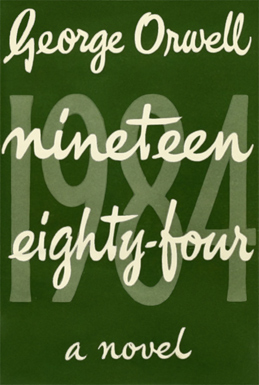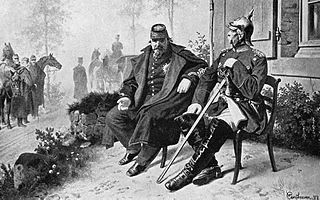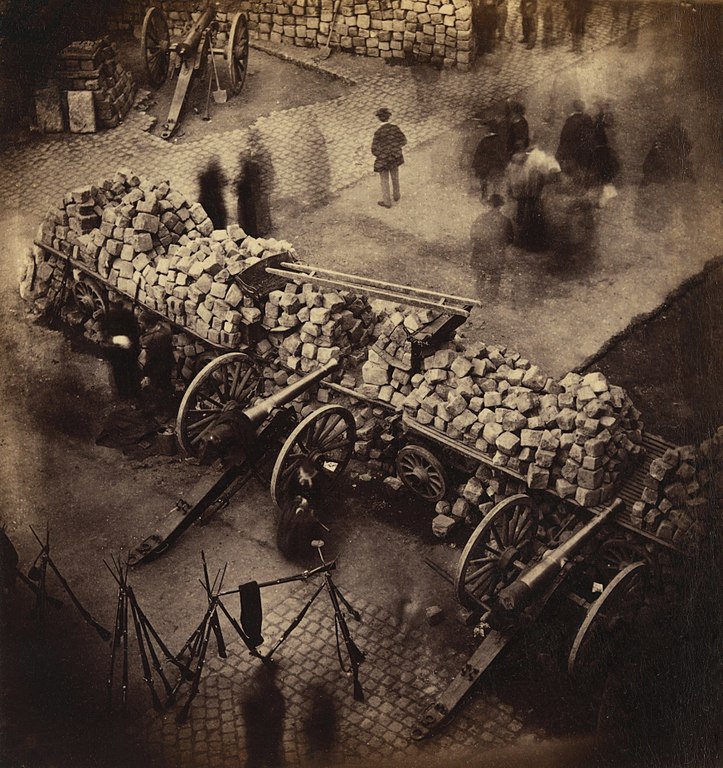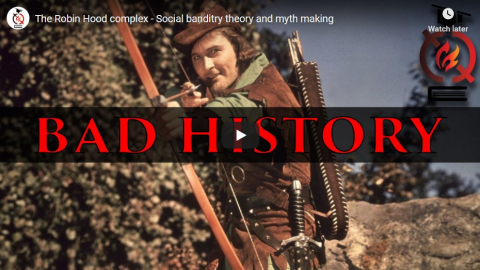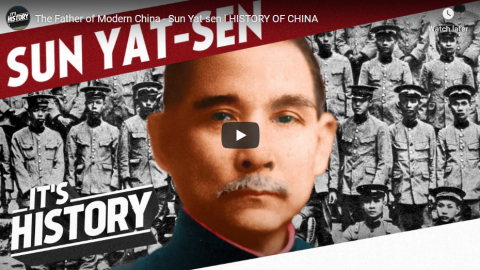Sabaton History
Published 24 Sep 2020Terrorism might be one of mankind’s oldest weapons. Since antiquity, horrific violence and assassinations were used to overthrow supposed tyrants and strike fear into the heart of the public.
The French Revolution at the end of the 18th century, saw terrorism evolving into its modern form. Political opponents, counter-revolutionaries, or simply sympathizers of the “old order”, were targeted and eliminated in a wave of terror. Political murder became romanticized.
Throughout the centuries until today, terror persists as a weapon of the few against the masses, in an effort to change society by force. Nothing made that clearer than the terrorist attacks against the United States on 9/11 2001.
Support Sabaton History on Patreon: https://www.patreon.com/sabatonhistory
Listen to “In The Name Of God” on the album Attero Dominatus: https://music.sabaton.net/AtteroDomin…
Listen to Sabaton on Spotify: http://smarturl.it/SabatonSpotify
Official Sabaton Merchandise Shop: http://bit.ly/SabatonOfficialShopHosted by: Indy Neidell
Written by: Markus Linke and Indy Neidell
Directed by: Astrid Deinhard and Wieke Kapteijns
Produced by: Pär Sundström, Astrid Deinhard and Spartacus Olsson
Creative Producer: Maria Kyhle
Executive Producers: Pär Sundström, Joakim Brodén, Tomas Sunmo, Indy Neidell, Astrid Deinhard, and Spartacus Olsson
Community Manager: Maria Kyhle
Post-Production Director: Wieke Kapteijns
Editor: Iryna Dulka
Sound Editor: Marek Kaminski
Maps by: Eastory – https://www.youtube.com/c/eastory
Archive: Reuters/Screenocean – https://www.screenocean.com
Sources:
– Alfred GrohsAll music by: Sabaton
An OnLion Entertainment GmbH and Raging Beaver Publishing AB co-Production.
© Raging Beaver Publishing AB, 2019 – all rights reserved.
September 25, 2020
“In the Name of God” – The History of Terror – Sabaton History 086 [Official]
QotD: “Qu’ils mangent de la brioche!” [“Let them eat cake!”]
It’s one of the most famous remarks in history — an instantly recognizable catchphrase to convey haughty indifference to the misfortune of others. And we all know who said it and why: It was Marie Antoinette (1755–1793), the queen whose life was claimed by the French Revolution, dismissing news that the peasants were starving due to the high price of bread.
In the original French, the Queen allegedly said, Qu’ils mangent de la brioche!, which doesn’t quite translate to “let them eat cake.” Brioche is sweet, eggy bread that tastes only vaguely like cake. The translated English word “cake” made Marie Antoinette seem even haughtier than in French. But it’s beside the point, since Marie Antoinette never uttered “let them eat cake” in any language. There is no historical evidence that she ever uttered that phrase. The story is pure invention. It’s a historical legend that rivals the myth of Nero “fiddling” while Rome burned. And yet this outlandish fabrication has shaped our image of Marie Antoinette for more than two centuries.
Compared to other historical falsehoods, this legend is easy to trace to its source. It was the French philosopher Jean-Jacques Rousseau. In book six of his Confessions, written in 1767, Rousseau wrote of a “great princess” who had, when told that the peasants had no bread, replied with those words cited above, Qu’ils mangent de la brioche! Was Rousseau referring to Marie Antoinette? This is impossible. When he wrote that passage, Marie Antoinette was still a girl living at the Habsburg court in Vienna (under her original name, Maria Antonia Josepha Johanna). Rousseau’s story was entirely made up, probably borrowed from another source. And while his book wasn’t published till 1782, this was still seven years before the French Revolution began. In fact, the first time someone (spuriously) put the words “let them eat cake” in Marie Antoinette’s mouth was a half-century later, in a book published by Jean-Baptiste Alphonse Karr, Les Guêpes.
Matthew Fraser, “Marie Antoinette: Figure of Myth, Magnet for Lies”, Quillette, 2020-06-24.
August 29, 2020
Durs Egg Ferguson – The Rifle That Didn’t Shoot George Washington
Forgotten Weapons
Published 27 Oct 2018http://www.patreon.com/ForgottenWeapons
Cool Forgotten Weapons merch! http://shop.bbtv.com/collections/forg…
Captain Patrick Ferguson was a British officer who designed and patented a breechloading rifle in 1776, which would actually see service in the American Revolution at the Battle of Brandywine. Ferguson presented two rifles to the British military for consideration, one of them being this specific gun. In a shooting demonstration on a windy, rainy day he convinced the Board of Ordnance of the viability of his rifle, and a field trials was set in motion. One hundred Ferguson rifles were made for the Crown, and Ferguson was detached from his regiment to be given command of a company of specially trained elite riflemen. His men were drilled in accurate shooting as well as use of the bayonet, they were organized in small groups to make use of cover and concealment, and they were fitted with green uniforms to blend into the terrain. This unit deployed to the American colonies in 1777, and saw action in the Battle of Brandywine.
Unfortunately for Ferguson and his ideas, the unit didn’t make any particularly notable impact on the battle, although not by any fault of their own. Worse, Ferguson was wounded, and because the unit was so heavily dependent on him it was disbanded while he recuperated. He did see service again at the Battle of King’s Mountain, where he was killed in action. This particular Ferguson rifle was made by the noted London gunsmith Durs Egg, and is one of the two guns presented to the Board of Ordnance that began the whole series of events.
Contact:
Forgotten Weapons
PO Box 87647
Tucson, AZ 85754If you enjoy Forgotten Weapons, check out its sister channel, InRangeTV! http://www.youtube.com/InRangeTVShow
August 25, 2020
The Russian Revolution 1917
Epic History TV
Published 4 Aug 2016Everything you need to know about the Russian Revolution in a 13 min video. Produced in partnership with Bridgeman Images http://www.bridgemanimages.com/en-GB/
We explain all the major events of Russia’s TWO revolutions of 1917 – the February Revolution that ended Tsarist rule in Russia, and the October Revolution, that brought the Bolsheviks to power. We explain the causes of Tsar Nicholas II’s growing unpopularity – the role of the mysterious Siberian mystic Rasputin, Russia’s disastrous involvement in World War One, and the events on the streets of Petrograd that led to the Tsar’s abdication. That summer Russia lurched from crisis to crisis, with a Provisional Government that faced riots (the July Days), military revolt (the Kornilov Affair), economic chaos, and constantly dwindling support. Socialist Prime Minister Alexander Kerensky, once hailed as Russia’s great hope, was unable to restore order, or, in October, prevent the Bolsheviks from launching a coup, organised by Leon Trotsky and led by Vladimir Lenin, that overthrow the Provisional Government and brought the Bolsheviks to power. A brutal civil war followed, leading to the death of more than 10 million Russians – amongst them Tsar Nicholas II and his family, executed by Bolsheviks at Yekaterinburg in July 1918. From the wreckage emerged the Soviet Union, formed in 1922, and destined to be one of the 20th century’s two superpowers.
Please help me make more history videos by supporting me at Patreon: https://www.patreon.com/epichistorytv
#EpicHistoryTV #HistoryofRussia #RussianRevolution
Recommended books on the Russian Revolution (as an Amazon Associate I earn from qualifying purchases):
S. A. Smith, The Russian Revolution: A Very Short Introduction http://geni.us/RzOAk2U
Orlando Figes, A People’s Tragedy: The Russian Revolution http://geni.us/UIxyirj
Robert Service, The Last of the Tsars: Nicholas II and the Russian Revolution http://geni.us/A89T
Neil Faulkner, A People’s History of the Russian Revolution http://geni.us/bME0unl
August 22, 2020
Creoles, Kaintucks, and the Culture War of Early New Orleans (feat. The Cynical Historian)
Atun-Shei Films
Published 21 Aug 2020For #ProjectFrance, I collaborated with @The Cynical Historian to teach y’all about the cosmopolitan cultural exchange between revolutionary France and a country called the United States of America in the late 18th and early 19th century. In this video, I discuss the contentious relationship between Anglo-Americans and French Creoles in New Orleans in the years after the Louisiana Purchase.
Support Atun-Shei Films on Patreon ► https://www.patreon.com/atunsheifilms
Leave a Tip via Paypal ► https://www.paypal.me/atunsheifilms (All donations made here will go toward the production of The Sudbury Devil, our historical feature film)
Buy Merch ► teespring.com/stores/atun-shei-films
#NewOrleans #History
Watch our film ALIEN, BABY! free with Prime ► http://a.co/d/3QjqOWv
Reddit ► https://www.reddit.com/r/atunsheifilms
Twitter ► https://twitter.com/atun_shei~REFERENCES~
[1] Lo Faber. “Anglo-Americans” (2018). 64Parishes https://64parishes.org/entry/anglo-am…
[2] Richard Campanella. Bienville’s Dilemma: A Historical Geography of New Orleans (2008). University of Louisiana at Lafayette, Page 170-171
[3] Peter J. Kastor. “Louisiana Purchase and Territorial Period” (2018). 64Parishes https://64parishes.org/entry/louisian…
[4] Daniel Rasmussen. American Uprising: The Untold Story of America’s Largest Slave Revolt (2011). Harper Perennial, Page 16
[5] Kimberly S. Hanger. Bounded Lives, Bounded Places: Free Black Society in Colonial New Orleans, 1769-1803 (1997). Duke University Press, Page 54-56
[6] Mary Gehman. The Free People of Color of New Orleans (2009). Sheridan Books, Page 49-51
[7] Rasmussen, Page 159-163
August 18, 2020
Napoleon’s First Victory: Siege of Toulon 1793
Epic History TV
Published 31 Mar 2018Get Epic History TV early access & voting rights at Patreon: https://www.patreon.com/epichistorytv
With big thanks to HistoryMarche, check out his channel here: https://www.youtube.com/channel/UC8MX…
Find Osprey books on the Napoleonic Wars here:
https://ospreypublishing.com/#EpicHistoryTV #NapoleonicWars #Napoleon
Music from Filmstro https://www.filmstro.com/
Get 20% off an annual license with this exclusive code:EPICHISTORYTV_ANNFrom Osprey Publishing (as an Amazon Associate I earn from qualifying purchases):
Toulon 1793: Napoleon’s first great victory: http://geni.us/vUITM
French Revolutionary Infantry 1789-1802: http://geni.us/RsWkNN
Napoleon’s Guns 1792-1815 (1): Field Artillery: http://geni.us/YWU1HaZ
Napoleon’s Guns 1792-1815 (2): Heavy and Siege Artillery: http://geni.us/SJn9I
July 7, 2020
Taking stock after the worst of the Wuhan Coronavirus epidemic
David Warren discusses an intractable “problem”:
I do not suppose it makes any practical difference what I have to say about a public health problem that invades the lives of billions; nor that readers will take me for a reliable epidemiologist when I say that the worst danger of that Batflu has now passed. (Infection rates spike, but the power of the virus to torture and kill has relented. The death rates continue downward.)
Nevertheless, I think there is some value in stating, even restating, the obvious — when what is obvious is in conflict with sensational reports, and the aggressive distortions of mass media, profiting from panic.
This Batflu became — more than any previous epidemic — a political issue, instantaneously. This is evident in the way it was spread, quite intentionally, by the Communist Party of China. (They shut down everything in Wuhan, except flights to Europe and America.) In all countries with democratic institutions, the disease became the centre of political attention, and unprecedented lockdowns were ordered. Likewise, unprecedented schemes of surveillance have significantly changed the relation between governments and governed, entirely for the worse. By means of current technology, the former will be able to perpetuate these changes, leaving those who wish to recover old liberties nowhere to hide.
Moreover, this is done by public demand. “The peeple” are easy to manipulate, once they have been frightened. The great majority of men, now and through the past, never cared about freedom. It has always been a minority concern, “for the intellectuals.” The “silent majority” will take their freedom, but only after their comfort and safety have been assured. The right to choose among consumer products is enough for them.
There are revolutions, such as the one that is now being attempted by the Left, but these never last. Either they are extinguished, under the wet blanket of public apathy, or the revolutionists succeed in installing a truly monstrous regime. Only thus, can they prolong their evil. Two generations of half-educated, indoctrinated, university grads favour a doctrinal dictatorship. Those still young are full of malign energy.
June 27, 2020
Maximilien Robespierre: The Reign of Terror
Biographics
Published 5 Jul 2018Maximilien Robespierre promised to usher a fairer, more representative form of government to the French people. What they got was a reign of terror that saw thousands facing the horror of the guillotine.
Visit our companion website for more: http://biographics.org
Credits:
Host – Simon Whistler
Author – Steve Theunissen
Producer – Jack Cole
Executive Producer – Shell HarrisBusiness inquiries to biographics.email@gmail.com
June 13, 2020
The CHAZ is a little bit 1968, a little bit 1789, but perhaps more 1871
Lawrence W. Reed finds the developments in the Capitol Hill Autonomous Zone of Seattle remind him of the Paris Commune:
“‘Autonomous zone’ has armed guards, local businesses being threatened with extortion.”
That was quite a striking headline to behold. My immediate reaction was, “Oh my gosh, the Paris Commune is back!”
Except that it wasn’t Paris, and it wasn’t 1871. It was Seattle, Washington, USA — today. According to multiple reports, radical protesters seized a six-block area of the city. They declared it a police-free fiefdom, posted armed guards at its perimeter, began extorting money from local businesses (normally called “taxation”) and were even requiring residents to provide ID to enter their own homes.
The Paris Commune that lasted just 70 days in the spring of 1871 was born amid the ruins of France’s wartime loss at the hands of Prussia in the fall of the previous year. When the Prussians captured France’s Emperor Napoleon III, the monarchy collapsed, and the French Third Republic was born. In Versailles, just a few miles from Paris, its leaders sat on their hands as Parisians stewed in the toxic juices of defeat, resentment, and a rising tide of Marxist-inspired class warfare. The voices of the big mouths increasingly drowned out those of the more moderate citizens who preferred to get the city back to normal and work for a living.
On March 18, 1871, the socialist radicals seized the upper hand in the City of Lights. They occupied government buildings and ousted or jailed their opposition. It was a “People’s Revolution” (unless you were one of the people who didn’t support it). Karl Marx’s communist scribblings provided the radicals — called “Communards” — with their primary inspiration, but Marx himself later criticized their failure to immediately seize the Bank of France and march on the government in Versailles. In the early days of the Paris Commune, however, he hoped he was witnessing a fulfillment of his own delusions:
The struggle of the working class against the capitalist class and its state has entered upon a new phase with the struggle in Paris. Whatever the immediate results may be, a new point of departure of world-historic importance has been gained.
May 29, 2020
QotD: Historical ways to deal with your “rage heads”
The main lesson I hope our distant descendants draw from the Orange Man Era is: The rage heads ye have always with you, so ye must find a way to channel them into something as non-destructive as possible. The story of modern politics can be written in a sentence: The weaponization of rage heads, combined with the inability of any society to properly dispose of said WMDs.
Set the Wayback Machine to the turn of the 20th century. Lenin’s great insight is that “the masses” will never achieve the proper revolutionary consciousness without a dedicated cadre of hardcore, professional revolutionaries to lead the way. Lenin recognized the prevalence of incipient rage heads in his society — how could he not? — but realized that, absent some guiding hand, they’d flounder around incoherently. At best (from the “furthering the Revolution” point of view), they’d do what his, Lenin’s, idiot brother did: Try to knock off the tsar, and get himself hung for it. Thus, the Bolsheviks.
The problem, though, is that rage heads by definition suffer from poor impulse control. The tiny subset of them that are pure sociopaths (like Lenin), and thus have the icy-veined self-control to hold their fire, have to maintain the very tightest discipline over the Party, or all hell breaks loose. See, for example, the massive street battles in Weimar Germany between the KPD (German Commies) and the SD. Hitler, like Lenin, had to get his rage heads on a tight leash, so he channeled the disciplined sociopaths from the SD into the SS, cooled out the coolable in the SD by buying them off, and shanked the incorrigible remainder. See also the almost-exactly-contemporary Moscow Show Trials.
Note please that this is your best-case scenario for a purely ideological revolution. From Robespierre to Kim Il Sung, the first step in consolidating the Revolution is killing off a large fraction of the original revolutionaries.
The worst-case scenario (again, from the “furthering the Revolution” standpoint) is what the American wannabe-bolshies did / are currently doing. Knowing that you can’t shank or show-trial the dreadlocked poetry majors that make up your goon squad, you try to channel them into academia, the Media, the “arts.” Which fails egregiously, because whatever tenuous contact with reality they once had gets completely severed by those institutions’ social bubbles. They never were very good at holding fire, and now they can’t, literally can’t, see any reason to — life is great here on campus, so why can’t it be that way everywhere?
Severian, “Living in End Times”, Rotten Chestnuts, 2020-02-28.
March 1, 2020
The Freikorps Marches On Berlin – The Kapp Putsch I THE GREAT WAR 1920
The Great War
Published 28 Feb 2020Sign up for Curiosity Stream and Nebula: https://curiositystream.com/thegreatwar
Dissatisfied with the new German Republic and the terms of the Treaty of Versailles, parts of the new Reichswehr and the paramilitary Freikorps decide to take matters into their own hands. The Marinebrigade Ehrhardt marches on Berlin to topple the government: It’s the Kapp Putsch.
» SUPPORT THE CHANNEL
Patreon: https://www.patreon.com/thegreatwar
Merchandise: https://shop.spreadshirt.de/thegreatwar/» SOURCES
Grevelhörster, Ludwig: Kleine Geschichte der Weimarer Republik. 1918-1933. Ein
problemgeschichtlicher Überblick, 2000.
Haffner, Sebastian: Die Deutsche Revolution 1918/1919. 2010.
Heiden, Konrad: Adolf Hitler: Das Zeitalter der Verantwortungslosigkeit. Ein Mann gegen
Europa, 2016.
Kotowski, Georg (Hrsg.): Historisches Lesebuch. 1914-1933, 1968.
Möller, Horst: Die Weimarer Republik. Demokratie in der Krise, 2018.
Pöppinghege, Rainer: Republik im Bürgerkrieg. Kapp-Putsch und Gegenbewegung an Ruhr
und Lippe 1919/1920, 2019.
Stackelberg, Roderick & Winkle, Sally (Ed.), The Nazi Germany Sourcebook: An Anthology of Texts, (Florence : Taylor and Francis, 2003)
Ulrich, Volker: Adolf Hitler. Band 1: Die Jahre des Aufstiegs 1889-1939. 2013.
Sturm, Reinhard (2011). “Weimarer Republik, Informationen zur politischen Bildung”. Bonn: Bundeszentrale für politische Bildung.» SOCIAL MEDIA
Instagram: https://instagram.com/the_great_war
Twitter: https://twitter.com/WW1_Series
Reddit: https://reddit.com/r/TheGreatWarChannel»CREDITS
Presented by: Jesse Alexander
Written by: Mark Newton
Director: Toni Steller & Florian Wittig
Director of Photography: Toni Steller
Sound: Toni Steller
Editing: Toni Steller
Mixing, Mastering & Sound Design: http://above-zero.com
Maps: Daniel Kogosov (https://www.patreon.com/Zalezsky)
Research by: Markus Linke
Fact checking: Florian WittigChannel Design: Alexander Clark
Original Logo: David van StepholdA Mediakraft Networks Original Channel
Contains licensed material by getty images
All rights reserved – Real Time History GmbH 2020
February 28, 2020
The Robin Hood complex – Social banditry theory and myth making
The Cynical Historian
Published 15 Dec 2016There’s one historical theory that people keep deluding themselves with, and it’s about time I pointed it out. Social banditry, or the “Robin Hood theory” is problematic at best and cultural misanthropy at worst.
Social bandit or social crime is a term invented by the Marxist historian Eric Hobsbawm in his 1959 book Primitive Rebels, a study of popular forms of resistance that also incorporate behavior characterized by law as illegal. He further expanded the field in the 1969 study Bandits. Social banditry is a widespread phenomenon that has occurred in many societies throughout recorded history, and forms of social banditry still exist, as evidenced by piracy and organized crime syndicates. Later social scientists have also discussed the term’s applicability to more modern forms of crime, like street gangs and the economy associated with the trade in illegal drugs.
————————————————————
References:
Boessenecker, John. “California Bandidos.” Southern California Quarterly 80, i4 (Dec. 1, 1998), 419-434.Hall-Patton, Joseph. Pacifying Paradise: Violence and Vigilantism in San Luis Obispo. San Luis Obispo: California Polytechnic – San Luis Obispo thesis, 2016. http://www.digitalcommons.calpoly.edu…
Hobsbawm, Eric. Primitive Rebels: Studies in Archaic Forms of Social Movement in the 19th and 20th Centuries. New York: WW Norton & Company, 1965. https://amzn.to/2L6TDY0
Hobsbawm, Eric. Bandits. Rev. ed. New York: The New Press, 2000. https://amzn.to/2L4RagK
Rediker, Marcus. Outlaws of the Atlantic: Sailor, Pirates, and Motley Crews in the Age of Sail. Boston, Mass.: Beacon Press, 2014. https://amzn.to/2OasYf4
Linebaugh, Peter and Marcus Rediker. The Many-Headed Hydra: Sailors, Slaves, Commoners, and the Hidden History of the Revolutionary Atlantic. Boston, Mass.: Beacon Press, 2000. https://amzn.to/2JKq8tN
https://en.wikipedia.org/wiki/Social_…
https://en.wikipedia.org/wiki/Zorro
https://en.wikipedia.org/wiki/Pancho_…
https://en.wikipedia.org/wiki/Joaquin…
https://en.wikipedia.org/wiki/Salomon…
https://en.wikipedia.org/wiki/Black_B…
————————————————————
Patreon:
https://www.patreon.com/CynicalHistorianLET’S CONNECT:
https://twitter.com/Cynical_History
—————————————–
Hashtags: #History #SocialBanditry #PrimitiveRebellion #RobinHood #BillyTheKid
November 29, 2019
Revolts, civil wars, and revolutions
Severian offers his taxonomy of protest with examples from English history:
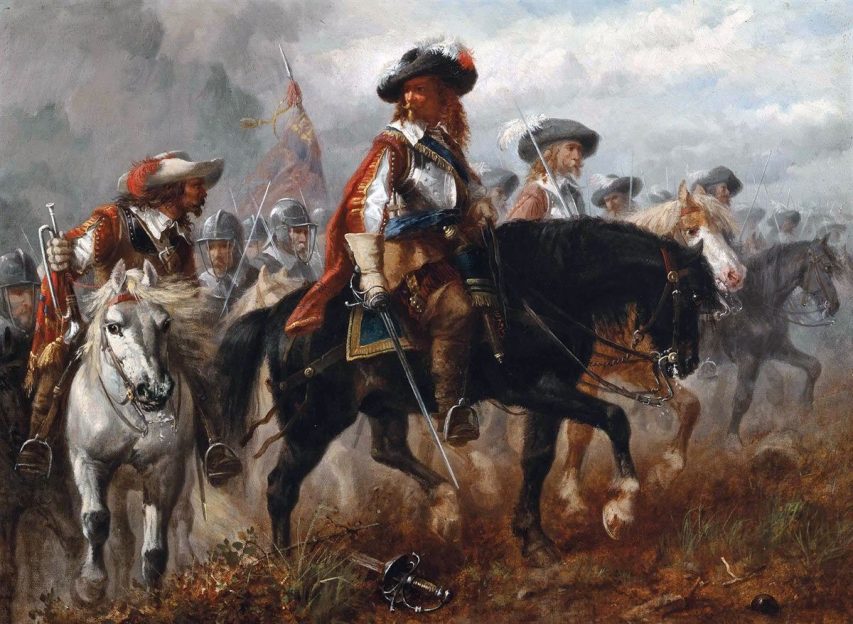
King Charles I and Prince Rupert before the Battle of Naseby 14th June 1645 during the English Civil War.
19th century artist unknown, from Wikimedia Commons.
- A revolt is a large-scale, semi-organized riot. It aims, at best (e.g. Wat Tyler’s Rebellion), at the redress of specific grievances. At worst, it’s violent nihilism (e.g. the Jacquerie).
- A civil war aims to replace one leader with another, leaving the underlying civil structure intact — e.g. any of the Roman civil wars post-Augustus.
- A revolution‘s goal is total social transformation. We’re stipulating that it’s violent, because while stuff like the Industrial Revolution is fascinating, we’re not looking at peaceful change here in the Current Year. Revolutions are necessarily, fundamentally ideological.
I realize this can cause some confusion, as events I’d classify as “revolutions” are called civil wars in the history books, and vice versa. But the difference is important, because it sheds light on the development, course, and outcome of events.
The paradigm case is the English Civil War, 1642-51. This was clearly a revolution, as it aimed at — and achieved — the near-total overthrow of existing society. When Charles I took the throne in 1625, his kingdom was very much closer to a Continental-style divine-right monarchy than most Britons would like to admit. While the English had succeeded in clawing some of their liberties back from the crown after Henry VIII’s death, the fact remains that the Stuart state, like the Tudor state, was despotic. But by 1625, the despot was completely out of step with his people, and his times.
By 1642, the first revolutionary prerequisite was in place: No clear alternative. There were lots of revolts against Henry VIII, and one of them, the Pilgrimage of Grace, had the potential to turn into a civil war, or even a revolution. The revolts against Elizabeth I didn’t quite rise to that level, but the Northern Rebellion, and Essex’s Rebellion certainly imperiled her government. See also Wyatt’s Rebellion against Queen Mary, the Prayer Book Rebellion and Kett’s Rebellion against Edward VI, etc. In all of these, the alternative was clear — return to Rome, replacement of one court faction with another, or return to the old ways.
November 27, 2019
The Father of Modern China – Sun Yat-sen l HISTORY OF CHINA
IT’S HISTORY
Published 2 Sep 2015Sun Yat-sen is known as the “father of modern China”. He spent his adult life fighting against imperial China and the ruling Qing dynasty. First as revolutionary leader and later as politician. He founded the Tongmenghui League in 1905 and supported rebellions in China. After the Wuchang Uprising, Sun handed over the presidential office for the Republic of China to Yuan Shikai who soon after would ban Sun’s political party, the Kuomintang. So he reformed it as China’s National People’s party. His military and political work laid the groundwork from which his successors would later call out the People’s Republic of China.
» Century of Humiliation
Part 1: http://bit.ly/humiliation1
Part 2: http://bit.ly/Humiliation2» SOURCES
Videos: British Pathé (https://www.youtube.com/user/britishp…)
Pictures: mainly Picture Alliance
Content:
Chang, Johannes (1960): “Sun Yat-sen – Seine Lehre und seine Bedeutung” in: JCSW 1 [1960] S.179-194
Gernet, Jacques (1988): Die chinesische Welt. Die Geschichte Chinas von den Anfängen bis zur Jetztzeit, Suhrkamp, Berlin.
Klein, Thoralf (2008): “Politische Geschichte Chinas 1900-1949”, auf bpb.de
https://www.bpb.de/internationales/as…
Vogelsang, Kai (2013): Geschichte Chinas, Reclam, Ditzingen.
Weigelin-Schwiedrzik (2012): “Der geteilte Himmel”, in ZEIT Geschichte Nr. 01/2012
http://www.zeit.de/zeit-geschichte/20…» ABOUT US
IT’S HISTORY is a ride through history – Join us discovering the world’s most important eras in IN TIME, BIOGRAPHIES of the GREATEST MINDS and the most important INVENTIONS.» HOW CAN I SUPPORT YOUR CHANNEL?
You can support us by sharing our videos with your friends and spreading the word about our work.» CAN I EMBED YOUR VIDEOS ON MY WEBSITE?
Of course, you can embed our videos on your website. We are happy if you show our channel to your friends, fellow students, classmates, professors, teachers or neighbors. Or just share our videos on Facebook, Twitter, Reddit etc. Subscribe to our channel and like our videos with a thumbs up.» CAN I SHOW YOUR VIDEOS IN CLASS?
Of course! Tell your teachers or professors about our channel and our videos. We’re happy if we can contribute with our videos.» CREDITS
Presented by: Guy Kiddey
Script by: Julia Korbik
Translated by: Guy Kiddey
Directed by: Daniel Czepelczauer
Director of Photography: Markus Kretzschmar
Music: Markus Kretzschmar
Sound Design: Marc Glücks
Editing: Markus KretzschmarA Mediakraft Networks original channel
Based on a concept by Florian Wittig and Daniel Czepelczauer
Executive Producers: Astrid Deinhard-Olsson, Spartacus Olsson
Head of Production: Michael Wendt
Producer: Daniel Czepelczauer
Social Media Manager: Laura PaganContains material licensed from British Pathé
All rights reserved – © Mediakraft Networks GmbH, 2015



